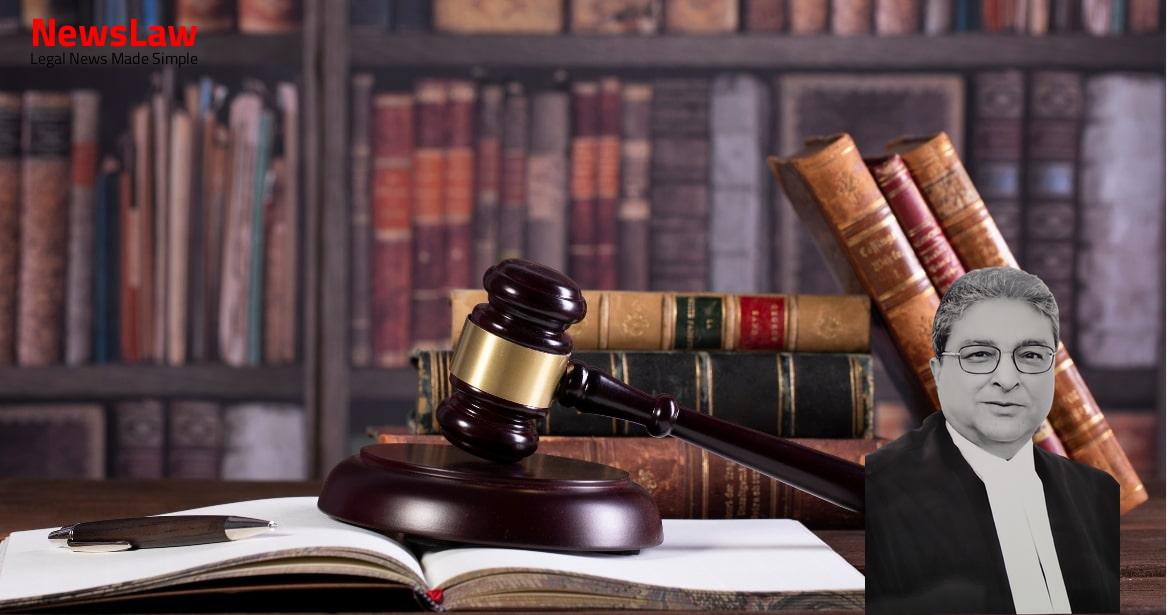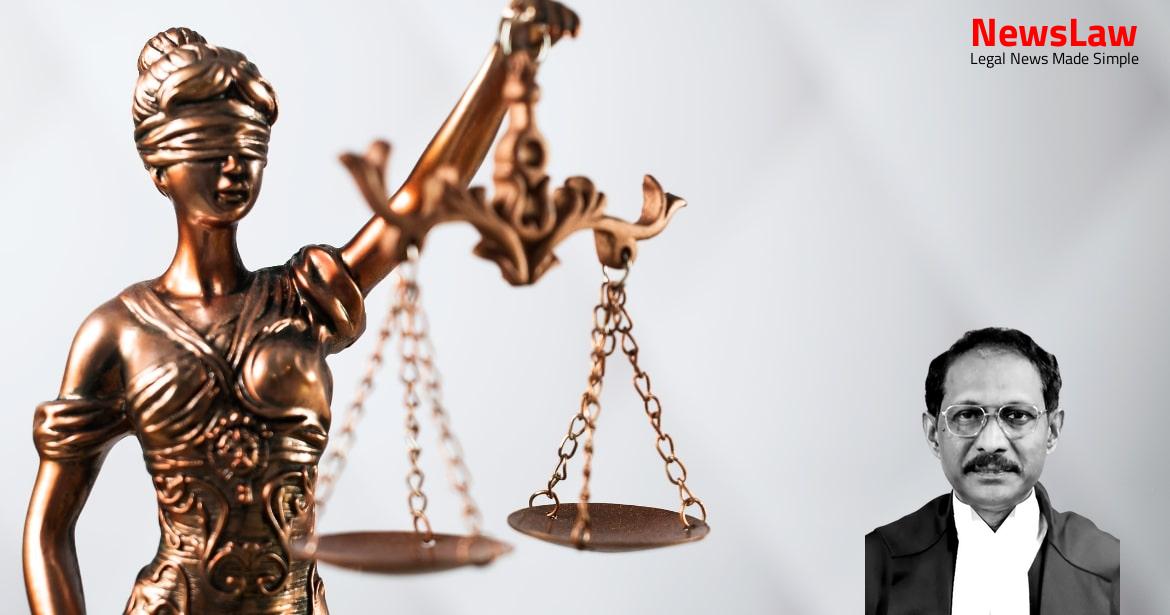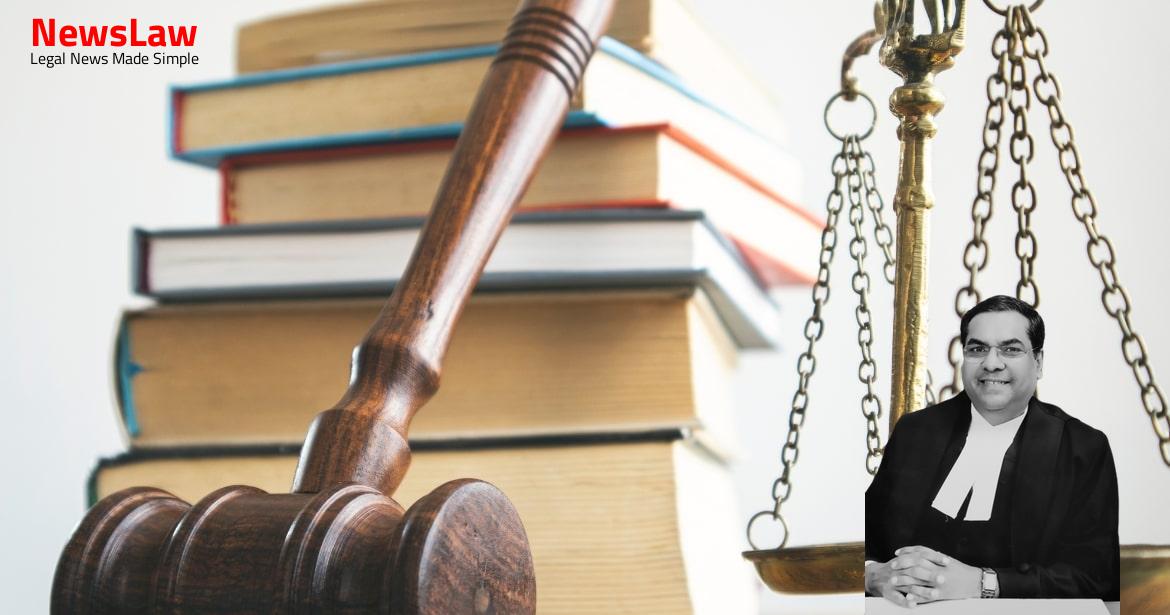In a significant development, the Supreme Court of India has issued a pivotal ruling on arbitration disputes, reshaping the landscape of legal proceedings in the country. The case involved a dispute between a Korean company and the National Highways Authority of India, with implications for the interpretation of contractual agreements and the application of government guidelines. This judgment marks a turning point in the realm of arbitration law, emphasizing the importance of upholding fundamental principles of justice and contractual obligations.
Facts
- The component C is considered in this part.
- The base date for calculation of price adjustment is 29.09.2005, which is 28 days prior to the last submission of bids on 27.10.2005.
- Price adjustment was paid to the appellant monthly using the Wholesale Price Index (WPI) under the Old Series until 14.09.2010.
- The Ministry of Industrial Development started publishing WPI under the New Series from 14.09.2010, but WPIs for previous years were also available.
- A Circular with a new formula for determining indices based on a linking factor from the year 2009-10 was issued on 15.02.2013.
- The Circular required contractors to provide an undertaking that the price adjustment method was acceptable, with no future claims allowed.
- A conditional undertaking was submitted by the appellant on 17.05.2013, stating conditions for accepting the Circular’s payment terms.
- A dispute arose on the application of the Circular for price adjustment calculation, leading to a Dissenting Award in favor of the appellant.
- The appellant raised a claim for unpaid price adjustment and interest from September 2010 to May 2014, which led to arbitration proceedings.
- The arbitration focused on whether the price adjustment under the contract terms or the Circular with the linking factor applied.
- The appellant is a Korean company, while the respondent is the National Highways Authority of India.
- The relevant sub-clause 70.3 of the contract outlined the formula for adjustment for the cement component.
- The appellant rejected the Circular’s application and challenged its validity through a writ petition in the High Court of Madhya Pradesh.
- The Delhi High Court restrained the respondent from implementing a Circular retrospectively.
- The final price adjustment amount will be determined based on the mentioned linkage factors.
- The New Series published by the Ministry could be applied in the case of the appellant.
- The government guidelines of the Ministry of Commerce and Industry required the establishment of a linking factor to connect the Old Series with the New Series.
- The majority award held that the Circular could be applied as it was within contractual stipulations.
- The dissenting arbitrator stated that neither the Circular nor the guidelines could be applied as they were de hors the contract.
- A Section 34 petition filed by the appellant was rejected by the Single Judge of the Delhi High Court on the basis that a possible view was taken by the majority arbitrators.
- The majority award applied an arithmetic conversion method to determine the linking factor between the Old Series and the New Series indices.
- The linking factors for different items of work/materials involved in price adjustment were specified as Cement – 1.528, Steel – 2.365, Plant and Machinery – 1.840, Other Materials – 1.873.
Also Read: Judgment on Contract Dispute: PSA Mumbai Investments PTE. Ltd. v. Jawaharlal Nehru Port Trust
Issue
- Issue: Applicability of amendments made in Section 34 to applications filed under Section 34 to set aside arbitral awards made after 23.10.2015
- Question of whether the amendments in Section 34 are applicable to post 23.10.2015 arbitral awards
- Need to determine the retrospective or prospective effect of the amendments
- Clarification on the scope and application of the amendments in Section 34
Also Read: Landmark Judgment: Abhyudaya Co-operative Bank Ltd. vs. Guravs
Arguments
- The learned Advocate for the appellant argued that Section 34(2)(a)(iv) of the 1996 Act applied to the present case due to the majority award making decisions beyond the scope of arbitration.
- It was contended that this constituted a jurisdictional error, where a new contract was effectively substituted by the majority award, amounting to novation of the old agreement.
- The argument further extended to Section 34(2)(b)(ii) being attracted as the award conflicted with the public policy of India, being fundamentally against Indian law and justice.
- The appellant’s counsel emphasized that the application of government guidelines behind the parties’ back breached Section 34(2)(a)(iii) of the 1996 Act.
- The learned counsel for the appellant also highlighted the violation of principles of natural justice, invoking Section 34(2)(a)(iii) as well.
- Various judgments were cited in support of these arguments.
Also Read: Supreme Court Judgment: Review Petition in RPC Aspect Case
Analysis
- The amendment to Section 28(3) by the Amendment Act follows the principles set out in paragraphs 42.3 to 45 of Associate Builders (supra).
- The summary highlights that a mistake of law will not amount to an excess of power under section 68(2)(b).
- The proposed proviso to Section 34(2A) clarifies that an award shall not be set aside merely on the ground of an erroneous application of the law or by re-appreciating evidence.
- The Judgment also underscores the importance of upholding the principle that an arbitral award must not go beyond the scope of submission to arbitration.
- It mentions that the government guidelines that were referred to by the majority award were never in evidence before the Tribunal.
- The Court clarifies that a decision based on no evidence or ignoring vital evidence would be considered perverse and liable to be set aside on the ground of patent illegality.
- The summary emphasizes on limiting the grounds for challenge of awards to specific criteria related to public policy and fundamental principles of justice.
- It brings attention to the fact that the amended Act will now apply with specific changes to court proceedings commenced on or after 23-10-2015.
- The text highlights the restrictive interpretation of public policy of India and the necessity for very exceptional circumstances to challenge an award based on ‘most basic notions of justice’.
- The analysis discusses shifting away from allowing challenges based on misinterpretation of the contract beyond the scope of arbitration agreement, warranting a narrow construction of such grounds.
- Sections 18, 24(3), and 26 are important pointers to what is contained in the ground of challenge mentioned in Section 34(2)(a)(iii).
- The key point highlighted is that each party should be given a full opportunity to present its case.
- If materials are taken behind the back of the parties by the Tribunal without giving them an opportunity to comment, the ground under Section 34(2)(a)(iii) would be made out.
- The Court may set aside an arbitral award if it is in conflict with the public policy of India, which includes instances like fraud, corruption, or violation of laws.
- Explanation 2 clarifies that a contravention with the fundamental policy of Indian law shall not entail a review on the merits of the dispute.
- The essence of public policy of India is now equated with the fundamental policy of Indian law, relegating the earlier Western Geco expansion.
- Section 34(2)(a) does not entail a challenge to an arbitral award on merits.
- A Circular unilaterally issued by one party cannot bind the other party without consent
- Circular stipulates contractors must furnish an undertaking that the price adjustment is acceptable
- Appellant gave undertaking conditionally and without prejudice to its argument against the Circular
- Majority award created a new contract by applying the Circular and substituting a formula outside the agreement
- Unilateral addition or alteration of a contract cannot be enforced on an unwilling party
- Fundamental principles of justice must be upheld; parties cannot be bound by a bargain not entered into
- Courts cannot interfere with arbitral awards based on their subjective view of justice
- Entering into the merits of the dispute goes against Section 34 of the 1996 Act
Decision
- The judgments of the Single Judge and of the Division Bench of the Delhi High Court are set aside.
- Disputes decided by the majority award would have to be referred afresh to another arbitration under Section 34 of the 1996 Act.
- The majority award is also set aside.
- The appellant is awarded the principal sum of INR 2,01,42,827 towards price adjustment under sub-clause 70.3 of the contract, along with interest at 10% compounded monthly from due date to the date of the award, and future interest at 12% per annum till date of payment.
- Invoking power under Article 142 of the Constitution of India, and considering speedy resolution, the minority award is upheld.
- The minority award states that the Claimant’s claim is awarded in full, with no costs awarded to either party.
- The minority award is to be executed between the parties.
Case Title: SSANGYONG ENGINEERING AND CONSTRUCTION CO. LTD Vs. NATIONAL HIGHWAYS AUTHORITY OF INDIA(NHAI)
Case Number: C.A. No.-004779-004779 / 2019



